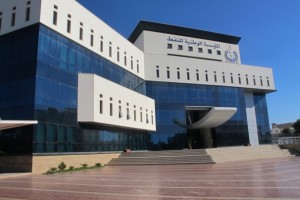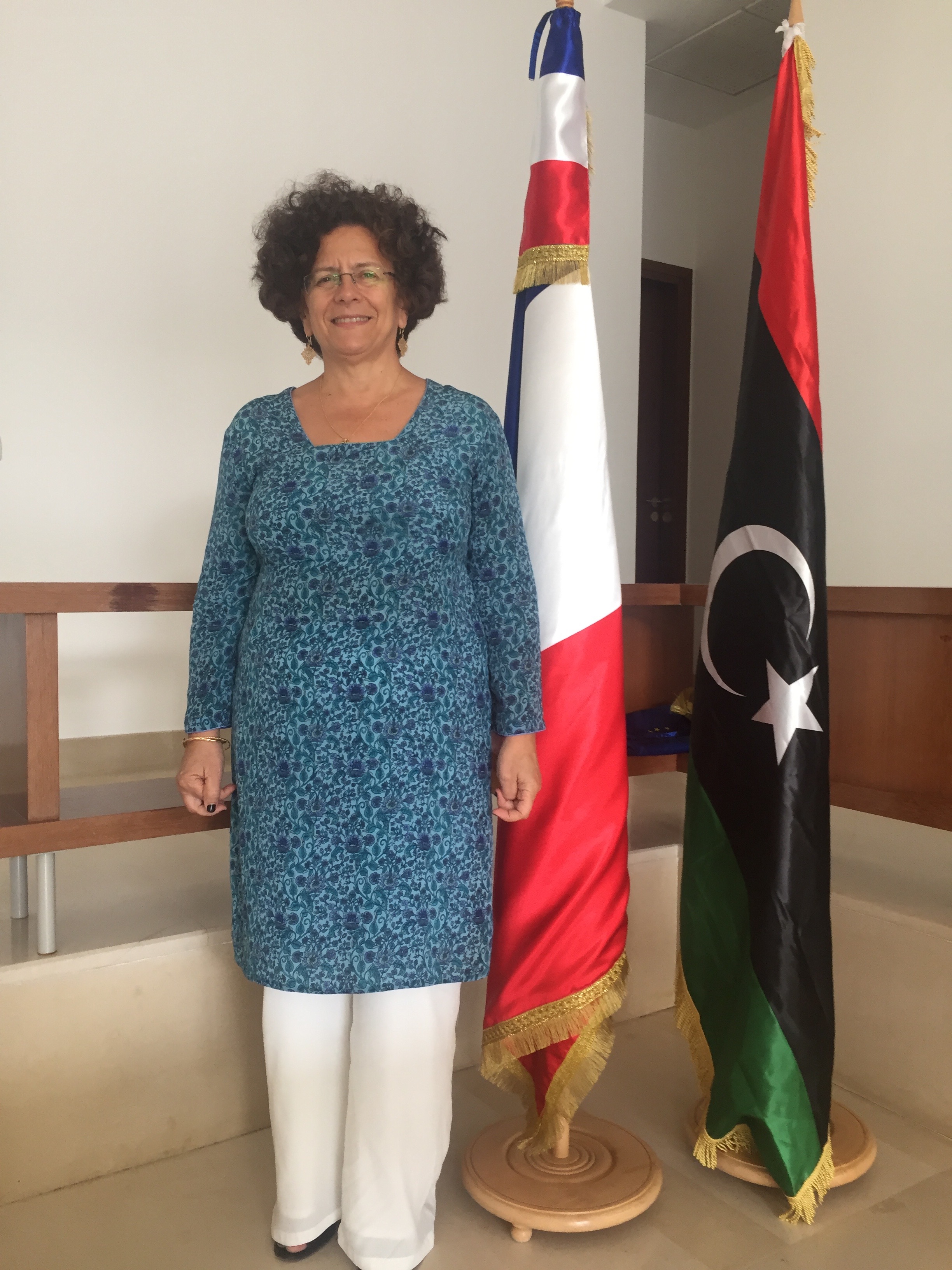By Azza K. Maghur.

Ottawa, 11 October 2016:
While the civil war is still raging in Libya, and the Libyan Political Agreement concluded at the end of last year seems to be at a dead end, it may not be the right moment to expect much from a state owned company like the National Oil Corporation (NOC) to play any meaningful role.
But the opportunity presented itself last month when the Libyan National Army (LNA) took control of the Libyan oil crescent, located at the heart of Libya, where most Libyan oil terminals and ports exist. The Libyan crescent area became the center of one of Libya’s ongoing conflicts, when in 2013 a militia called the Petroleum Facilities Guards (PFG) crippled the Libyan economy by preventing Libya’s oil exportation. These measures forced the NOC, the state agency that is in charge of all of Libya’s oil resource operations, administration and exportations, to declare a state of force majeure.
Since mid-September, when the NOC resumed its full activities in the region, several ports were opened and oil exports rose from under 290.000 barrels per day (bpd) last month, to 600.000 bpd. If this remains stable and the NOC competently performs its functions, exports are expected to reach 950.000 bpd by the end of the year.
Established in 1970, the NOC is a giant, Libyan state-owned company tasked with managing Libya’s only resource. However, the reality of post-Qaddafi Libya is that of a fragmented and divided country from top to bottom. Libya’s governing institutions are deeply divided, and thus, division contaminated its state institutions including the NOC, the Central Bank of Libya (CBL), and the Libyan Investment Authority (LIA).
Despite calls from the international community and the United Nations for the three institutions to stay unified and independent, they all suffered cleavages. In 2014 the NOC endured a period of divided management between the NOC Board of Directors appointed by the formerly recognized Interim Government located in the East of Libya (Al Bayda), and the NOC known and recognized by its international oil company partners in the West (Tripoli).
However, unlike the other two institutions, the NOC managed last July to merge and reunify under the oversight of the Tripoli-based Chairman, Mustafa Sanalla. Fortunately, this pivotal decision to merge and reunify took place before the LNA control of the oil crescent. Had this not occurred prior, the NOC would have never obtained access to the area, and the swift handover between the LNA and NOC wouldn’t have taken place.
The Presidency Council (PC) created by the UN sponsored LPA to serve as the executive authority of the country, and the Libyan House of Representatives (HoR) elected in 2014 are still not cooperating and working together as the accord requires. The HoR refuses to grant a vote of confidence to a Libyan Government of National Accord (GNA) proposed by the PC, and will not convene in a legitimate session to adopt the LPA in accordance with the Libya Constitutional Declaration.
Given this political chaos, the NOC wisely declared its position of equidistance from both entities. However, this position may not last for long, if the status quo continues.
Equally, while oil revenues from exports are directed to the Central Bank of Libya (CBL) located in Tripoli, the CBL is also experiencing division, despite efforts to unify it. Agila Saleh, the HoR chairman declared in an interview with Reuters (on Friday, October 7th), that he is expecting from the PC a small but widely representative proposed GNA – difficult conditions to meet.
But he also added that the HoR permitted the transfer of oil revenue to the CBL in Tripoli so that it reaches all Libyans based on geographical and population density. However, he emphasized that the CBL in Al Bayda (East) would put forth a new agreement along with the HoR’s Financial Committee to coordinate operations in both the CBL and NOC. These statements indicate that unless agreement among the key figures in both the HoR and PC along with the CBL and NOC, is reached with regard to exports and revenue – disagreements may arise at any time.
To this end, I find that the following seven tips can be useful for the NOC in the present delicate period:
1-Forge a direct relationship with Libyans: The NOC should open channels with ordinary Libyans and explain to them the current situation and process. Libyans are lacking trust in most if not all political institutions and need to get firsthand information. The NOC cannot afford to close its doors to the Libyan public at this critical stage.
2-Adopt a new media strategy. The NOC needs to appoint a spokesperson, improve its official website, interact on social media, and answer queries and questions from the public. NOC experts should go public and explain and simplify technical issues and spread awareness. The NOC should remember that one of the reasons behind its loss of the oil crescent to the PFG militia was its media ineffectiveness and inability to communicate.
3-Implement transparency and anti-corruption measures. As a result of 1 and 2 above, the NOC should place stringent rules and regulations with regard to transparency and corruption. It should also take austerity measures in its expenses and leverages. Libyans are living in misery under rising inflation, depreciation of the Libyan Dinar, and the lack of basic services such as electricity, while hearing that their oil exportation is on the rise. The NOC must account for this discrepancy and show empathy and solidarity with the public.
4-The NOC should begin to invest in sustainable development in the oil crescent region. The poverty and unemployment throughout that region were among the main reasons for youth to join the PFG militias.
5-Restructure its managerial system by solidifying its still nascent merger and unification agreement of last July. The NOC should be vigilant and preemptive in addressing any sign of a split that may be incited for political or self-interest. The NOC is in a state of emergency in a zone of war and should develop the ability and flexibility to work in it.
6-The NOC should play a conciliatory role. It should strive to obtain an agreement between the other major governmental institutions: The House of Representatives, the Presidential Council, and the Central Bank of Libya. The political and administrative environment in Libya is particularly harsh, and the NOC cannot only focus on executing its technical duties as in the past. It should not be dragged into the political fray, but it should learn how to maneuver around it. The NOC should consider proposing measures to ensure its unity and independence.
7-Libyan sovereignty and national wealth: Foreign intervention in Libyan affairs has inflamed the Libyan conflict, badly damaging all reconciliatory efforts. The current conflict is considered a proxy war as other civil wars in the region. Libya’s sovereignty has suffered erosion since 2011 which gave an opening to the infiltration of ISIS and the ongoing war of anti- ISIS coalition in the city of Sirte.
The NOC’s role as a guardian and manager of Libya’s vast oil wealth should be cognizant of attempts to meddle in the oil sector by foreign nations, and be ready to assert rigorously Libyan sovereignty over its main natural resources. Since the revolution, the Libyan state and its institutions have endured a series of litigations before foreign courts which is due to weak state authority, inefficient follow-up on cases and disputed legal representation. This has led to judgments with heavy consequences against them. The NOC should be ready and prepared to confront any further legal disputes.
While the fight for control over Libya’s valuable oil wealth has been a source of conflict and polarization, it may actually serve as a solution to the current political stalemate. Economic relief through the revival of Libya’s oil industry could be a powerful incentive.
In light of the recent developments, the NOC now finds itself in the unique position of being a cohesive state institution within a fragmented state. If it manages to consolidate its unity, preserve Libyan wealth and manage it with transparency and good governance, it may open a new avenue of reconciliation and prosperity for other government entities to follow – injecting new life into the faltering Libyan Political Agreement.
Azza K. Maghur is a lawyer, human rights activist, and former member of the General National Congress ‘‘February Committee’’ that amended the Temporary Constitutional Declaration of 2011.
The views expressed in Op-Ed articles are not necessarily those of the Libya Herald.







